Montessori House
of Children
We appreciate what we understand
We understand what we are taught
We appreciate what we understand
We understand what we are taught
“We appreciate what we understand
We understand what we are taught”
Firm Foundation is providing a stimulating and positive learning environment for students from 18 months to 6 years of age. Small classes ensure personalised guidance and attention. The students belong to a harmonious community and there is recognition of each child’s individual needs and learning styles. Education at the Firm Foundation offers your child an opportunity to develop independence, self-confidence and self esteem.
‘Working together to help our children to help themselves’
What Makes Montessori Different from Other Education?
The child learns and is motivated through the work itself (not solely through the teacher) to persist in a given task. Each child has their own programme suited to its developmental stage and needs. Each child receives individual attention, wherever possible and certainly wherever needed, all instruction is one on one in the early years or in small groups of similar ability. One of the most important advantages is that each child can and does work at his/her own pace. Children are expected to work, and there is no competitiveness, only the child’s own drive and desire to learn. The child is neither pressured to keep up with the group, nor bored by having to wait for others to catch up, consequently the child is happy to learn and come to school.
“Education is a natural process carried out by the child and is not acquired by listening to words but by experiences in the environment.”
The Montessori approach to education is child centered and is based on mutual respect and cooperation. The teacher in a Montessori classroom is more of a guide and facilitator respecting the concentration and varied learning approaches of the children. Non-aggression and non-interruption, tolerance and concern for others are stressed. Montessori is about learning to balance responsibility with freedom of choice. It offers children the opportunity to realise their potential in a non-competitive environment and seeks to promote in them:
“When dealing with children there is greater need for observing than of probing”
Respect for a child’s personality and trust in their inner potentialities are prerequisite to the foundation of an adequate educational alliance, between parent and teacher, parent and child and between teacher and student.
Our aim is to assist in the development of each child’s innate potential, by creating a school environment in which the child can do and think for him/herself. Patterns of concentration, focus and thoroughness established in early childhood produce a confident, competent learner in later years. Montessori teaches children to observe, to think, to judge and provides a framework in which intellectual and social discipline go hand in hand.
The following principles list some of her major ideas about how children learn and develop:
“The child is both a hope and a promise for mankind.”
The Montessori Programme is designed for children from 18 month to 6 years old. Children attend a daily session for five days a week. This provides a regular and established routine at an optimal time of the day for learning.
As in a family, the children learn from and assist one another. They are free to move about, talk and work with familiar materials that can be divided into the five basic areas of the pre-school curriculum:
Children in First Stage gradually develop a new level of social and emotional maturity, which usually indicates a readiness to enter the Stage 2. To help in this transition, children are encouraged to spend more time in what will become their new classroom where materials and methods overlap from the pre-primary. In this way a gradual transition into Primary is achieved, as there is a continuity and logical progression through each stage.

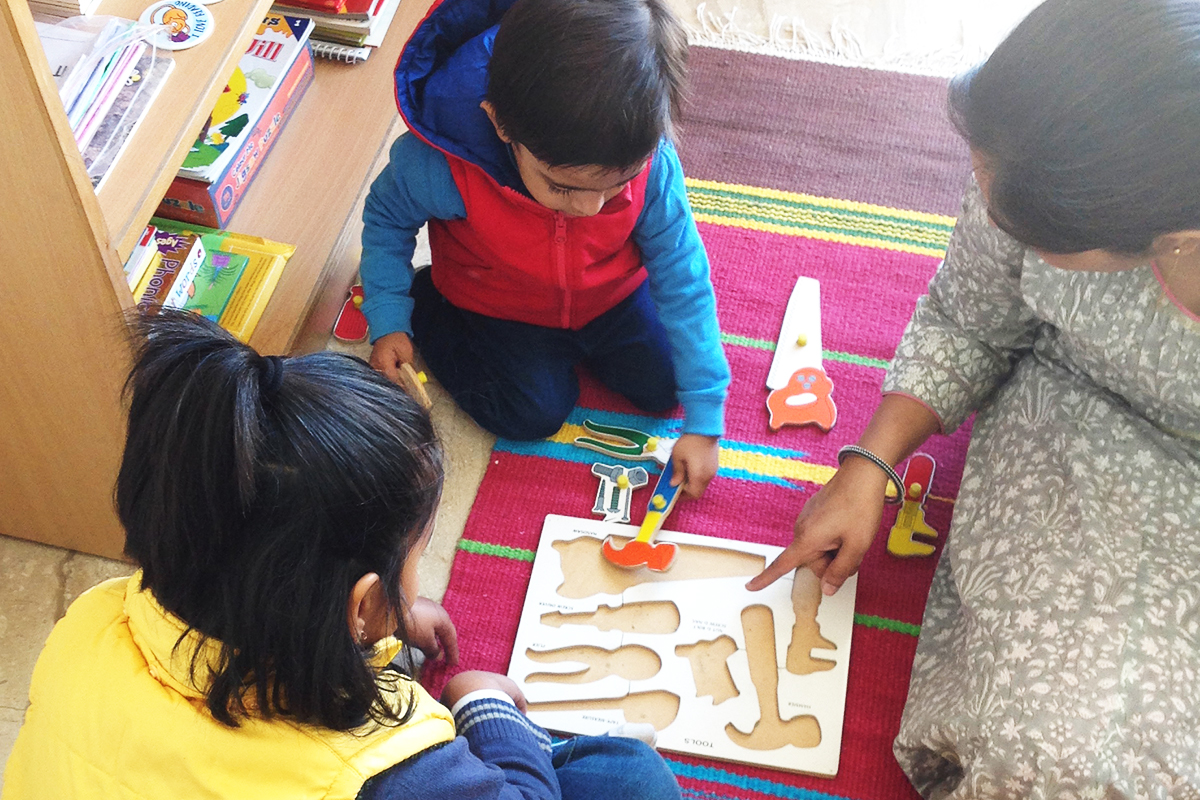
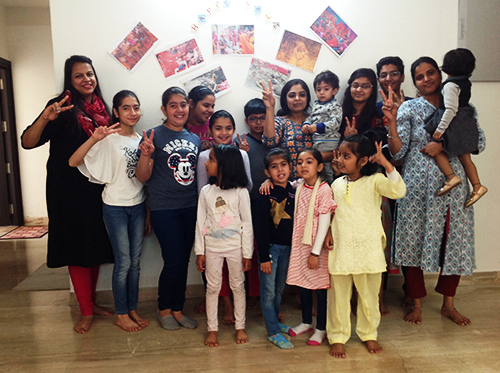
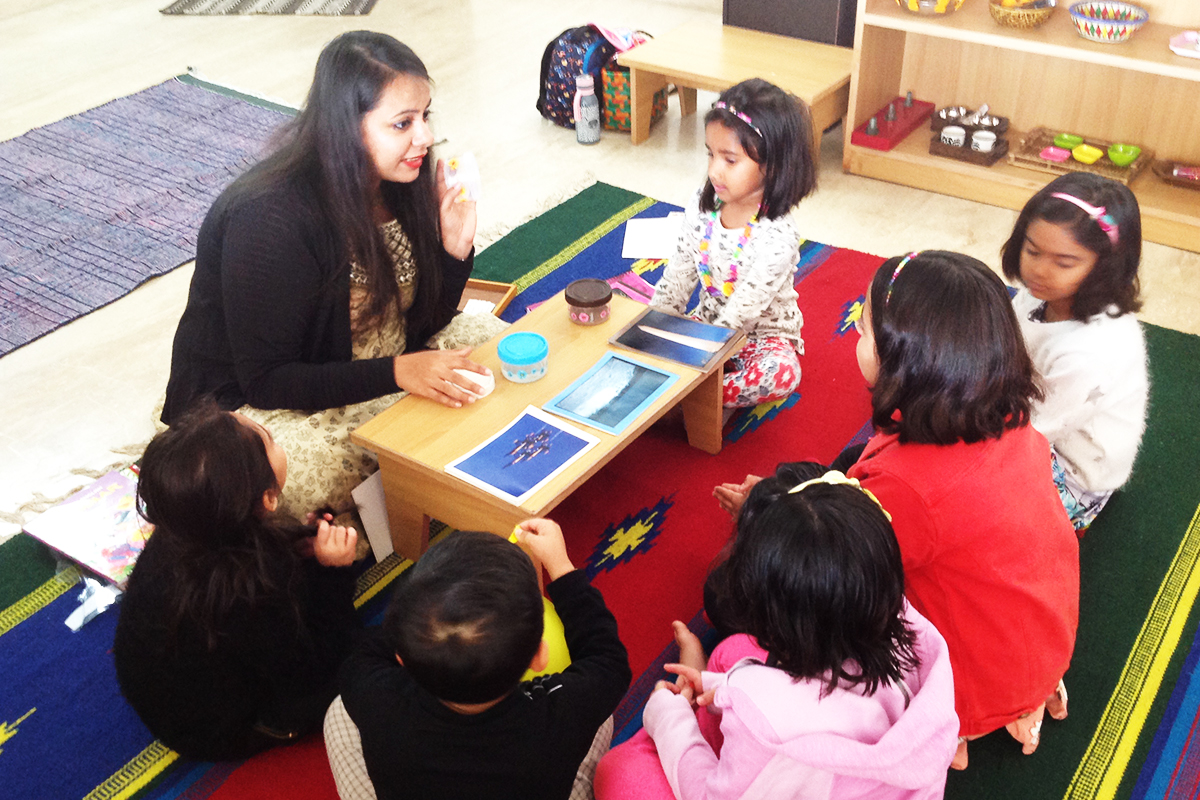


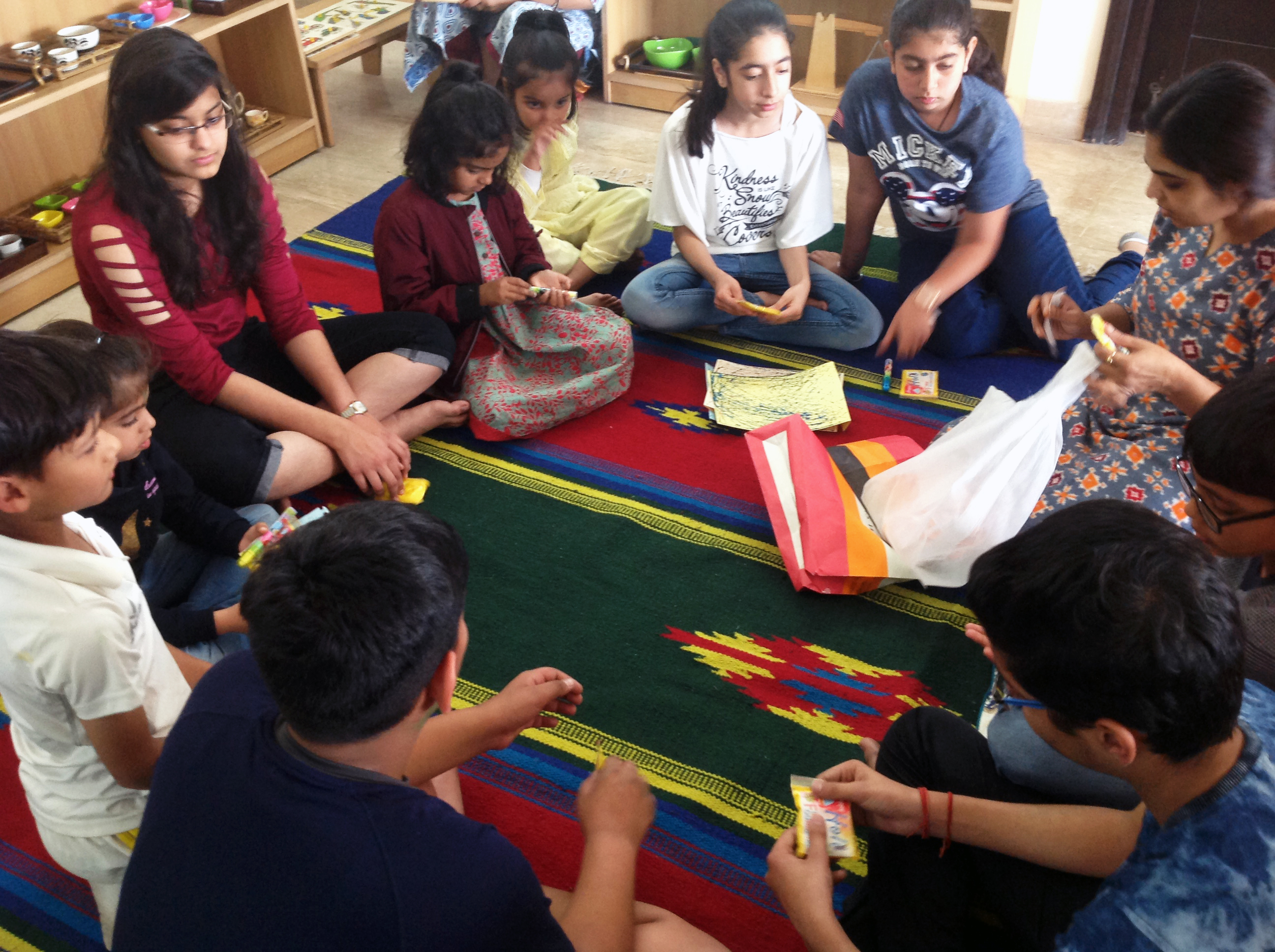
Montessori emphasizes learning through all five senses, not just through listening, watching, or reading. Children in Montessori classes learn at their own, individual pace and according to their own choice of activities. Learning is an exciting process of discovery, leading to concentration, motivation, self-discipline, and a love of learning. Montessori classes are vertical grouped (children of different ages in same class), forming communities in which the older children spontaneously share their knowledge with the younger ones.
Montessori is designed to help all children reach their fullest potential at their own unique pace. A classroom whose children have varying abilities is a community in which everyone learns from one another and everyone contributes. Moreover, vertical grouping allows each child to find his or her own pace without feeling "ahead" or "behind" in relation to peers.
There are more Montessori programs for ages 0-6. Infant/toddler programs (ages 2 months to 3 years), as well as elementary (ages 6-12), adolescent (ages 12-15) and even a few Montessori high schools.
Research studies show that Montessori children are well prepared for later life academically, socially, and emotionally. In addition to scoring well on standardized tests, Montessori children are ranked above average on such criteria as following directions, turning in work on time, listening attentively, using basic skills, showing responsibility, asking provocative questions, showing enthusiasm for learning, and adapting to new situations.
The Montessori Method encourages the child to be self-disciplined, self-confident, independent, and creative. Children find joy in learning itself rather than in the teacher's approval or any reward. It creates an enthusiasiasm in learning and improves concentration. Montessori education provides a framework in which intellectual and social development goes hand in hand.
Most children adjust readily to new classroom situations. They have developed a high degree of self-discipline and independence in the Montessori environment and adapt well.

Montessori system of education was figured by Maria Montessori in the mid 1900s...

Dr. Maria Montessori established the Montessori Method in Italy in the early 1900s and her scientific approach to education was formed around the individual needs of the child...
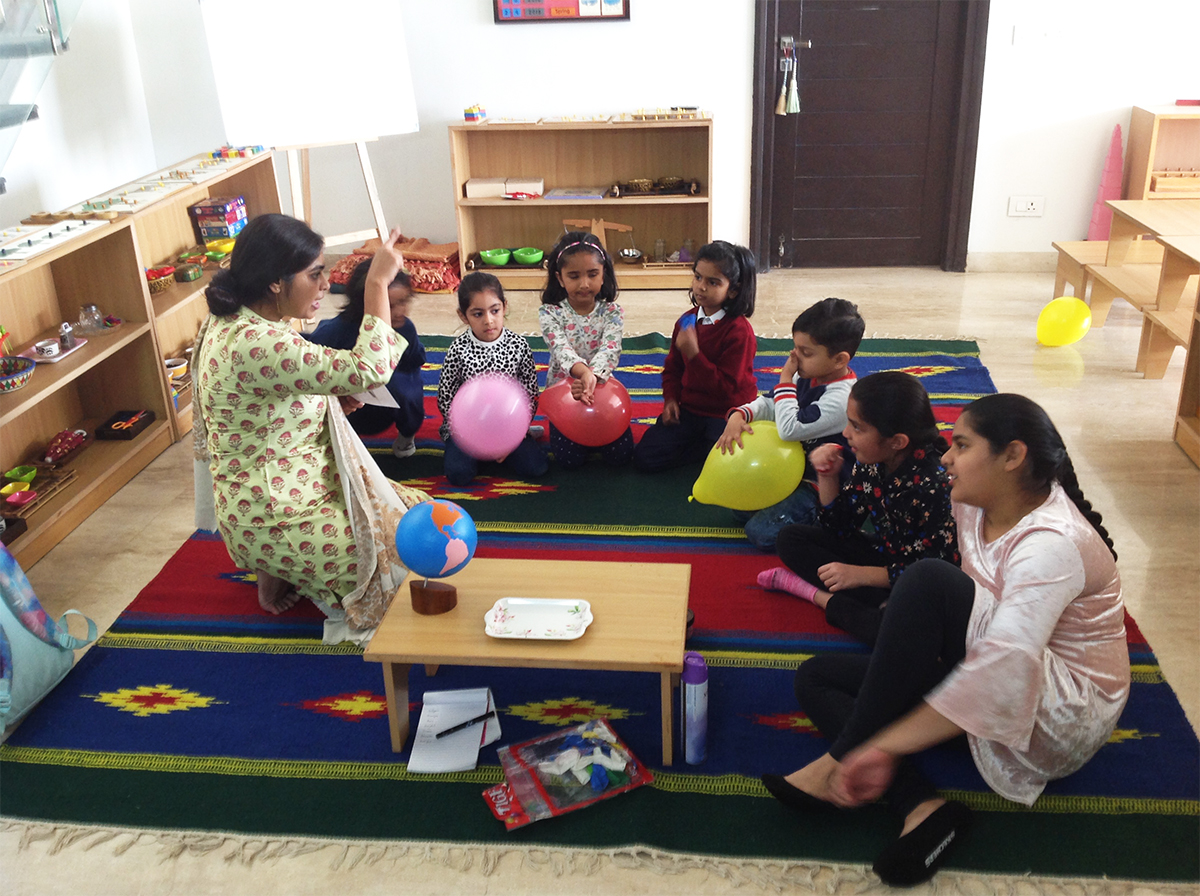
Montessori Summer Camp is filled with exploration of each sort! From art to sports and games to scholarly work in our Montessori classrooms...
Firm Foundation offers the best skill and curriculum of knowledge at reasonable fees.
Ensure to foster and develop your child and raise them to the international community.